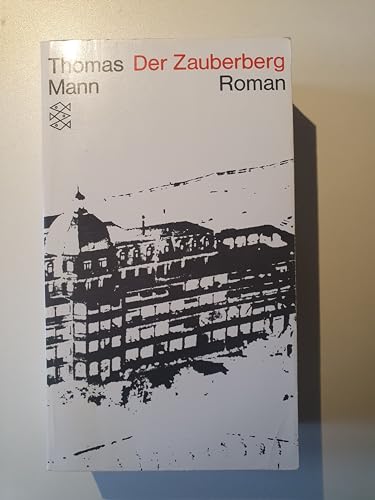Notizen Oktober 2018
Ernst Theodor Amadeus Hoffmann (1776 - 1822)
Die Elixiere des Teufels (1815/16)
Eines der Bücher, das ich in den vergangenen 30 Jahren mehrmals zu lesen begonnen habe - aber nie über die ersten Kapitel hinausgekommen bin.
Nun als Hörbuch in der wunderbaren Lesung von Peter Matic erneut begonnen und daher die etwas schleppend beginnenden Kapitel zu Anfang des Romans "überstanden"...danach sehr unterhaltsam, voll von wunderbaren Passagen und interessanten Bemerkungen z.B. zur Spielsucht oder zur "Galanterie":
"...ich fühle nur zu lebhaft, daß es nicht sowohl die Gefahr ist, durch
bedeutenden Verlust in die übelste Lage zu geraten, welche dieses Spiel
so verderblich macht, sondern vielmehr die Kühnheit, geradezu wie in
offener Fehde es mit der geheimen Macht aufzunehmen, die aus dem Dunkel
glänzend hervortritt und uns wie ein verführerisches Trugbild in eine
Region verlockt, in der sie uns höhnend ergreift und zermalmt. Eben
dieser Kampf mit jener Macht scheint das anziehende Wagestück zu sein,
das der Mensch, seiner Kraft kindisch vertrauend, so gern unternimmt und
das er, einmal begonnen, beständig, ja noch im Todeskampfe den Sieg
hoffend, nicht mehr lassen kann. Daher kommt meines Bedünkens die
wahnsinnige Leidenschaft der Pharospieler und die innere Zerrüttung des
Geistes, die der bloße Geldverlust nicht nach sich zu ziehen vermag und
die sie zerstört."
"[Galanterie]...ist die sonderbare Gabe, über nichts mit bedeutenden
Worten zu schwatzen und so den Weibern ein gewisses Wohlbehagen zu
erregen, von dem, wie es entstanden, sie sich selbst nicht Rechenschaft
geben können. Daß diese höhere und eigentliche Galanterie sich nicht mit
plumpen Schmeicheleien abgeben kann, fließt aus dem Gesagten, wiewohl
in jenem interessanten Geschwätz, das wie ein Hymnus der Angebeteten
erklingt, eben das gänzliche Eingehen in ihr Innerstes liegt, so daß ihr
eignes Selbst ihnen klar zu werden scheint und sie sich in dem Reflex
ihres eignen Ichs mit Wohlgefallen spiegeln."
Am Ende ließ mich das Werk dann doch mit zwiespältigen Gefühlen zurück...als Ganzes irgendwie "unstimmig", in Passagen geradezu langwierig - und teilweise von faszinierenden Traumsequenzen, scharfsinnigen Beobachtungen und überaus schönen Abschnitten.
Das Übersinnliche, die Schauerromantik kommt dann doch immer wieder etwas direkt und plump daher...
 Bruder und Schwester Lenobel (2018)
Bruder und Schwester Lenobel (2018)
wieder zurückgelegt...
Prosper Mérimée (1803 - 1870)
La Double Méprise (1833)
Eine großartige Erzählung - scharfsinnig, zynisch - von einem für diese Epoche außergewöhnlichen psychologischen Realismus.
Johann Sebastian Bach (1685 - 1750)
Messe in h-Moll BWV 232 (1749)
z.B.: Gardiner 2015: https://www.youtube.com/watch?v=m7obnfrlP0s
Giovanni Battista Pergolesi (1710 - 1736)
Adriano in Siria (1734)
z.B. : auf Youtube:
1. Akt: https://www.youtube.com/watch?v=mlVxOibO9zw
2. Akt: https://www.youtube.com/watch?v=b8XochVhxyU
3. Akt: https://www.youtube.com/watch?v=FnIE-Fy8x64
Mir ist kein Libretto bekannt, das mehr Opern zugrundeliegt als dieses Libretto von Metastasio (1698 - 1782):
1732: Antonio Caldara
1733: Geminiano Giacomelli
1734: Giovanni Battista Pergolesi, Adriano in Siria
1734: Pietro Giuseppe Sandoni
1735: Francesco Maria Veracini (adaptation of the libretto by Angelo Cori)
1735: Riccardo Broschi
1736: Egidio Duni
1737: Giovanni Battista Ferrandini
1737: José de Nebra, Adriano en Siria o Más gloria es triunfar de sí
1737: Giovanni Porta
1739: Giovanni Alberto Ristori
1740: Baldassare Galuppi
1740: Michele Caballone
1740: Giovanni Battista Lampugnani
1740: Antonio Giai
1745: Giovanni Verocai, Die getreue Emirena Parthische Prinzeßin
1745: Carl Heinrich Graun, Artabanus
1746: Girolamo Abos
1746: Paolo Scalabrini
1747: Gaetano Latilla
1747-48: Vincenzo Legrenzio Ciampi
1750: Ignazio Fiorillo
1750: Giovan Battista Pescetti
1750: Antonio Gaetano Pampani
1751: Andrea Adolfati
1752: Giuseppe Scarlatti
1752: Johann Adolph Hasse
1752: Davide Perez
1753: Michelangelo Valentini
1753: Giuseppe Scolari
1754: Nicola Conforto
1755: Andrea Bernasconi
1756: Rinaldo di Capua
1757: Francesco Uttini
1757: Francesco Brusa
1758: Giovanni Battista Borghi
1758: Baldassare Galuppi (second version)
1760: Antonio Maria Mazzoni
1762: Johann Gottfried Schwanenberger
1762: Giuseppe Colla
1763: Gregorio Sciroli
1764: Marian Wimmer
1765: Pietro Alessandro Guglielmi
1765: Johann Christian Bach
1768: Ignaz Holzbauer
1768: Hieronymus Mango
1769: Gian Francesco de Majo
1769: Carlo Monza
1770: Antonio Sacchini
1770: Antonio Tozzi
1773: Giacomo Insanguine
1775: Gaetano Monti
1776: Josef Mysliveček, Adriano in Siria
1777: Pasquale Anfossi
1778: Giuseppe Sarti
1779: Felice Alessandri
1781: Giacomo Rust
1782: Luigi Cherubini
1788: Jakob Friedrich Gauss, Hadrian in Syrien
1789: Sebastiano Nasolini
1798: Simon Mayr
1799: Étienne Méhul, Adrien, libretto by François-Benoît Hoffman adapted from Metastasio
1807: Joseph Weigl, Kaiser Hadrian
1811: Vincento Migliorucci
1813: Marcos Portugal
1815: Giuseppe Farinelli
1821: Pietro Airoldi
1828: Saverio Mercadante
Seit Wochen trage ich die Idee zu einem Bild "Maria Magdalena triumphiert über Belphegor" in mir.
Daher habe ich mich u.a. mit folgenden Werken beschäftigt:
Compendium Maleficarum / Francesco Maria Guazzo (1608)
De operatione daemonum / Michael Psellos (~1050)
Pseudomaonarchia Daemonum / Johann Weyer (1577)
Testament des Salomon / apokryph (4. Jhdt)










